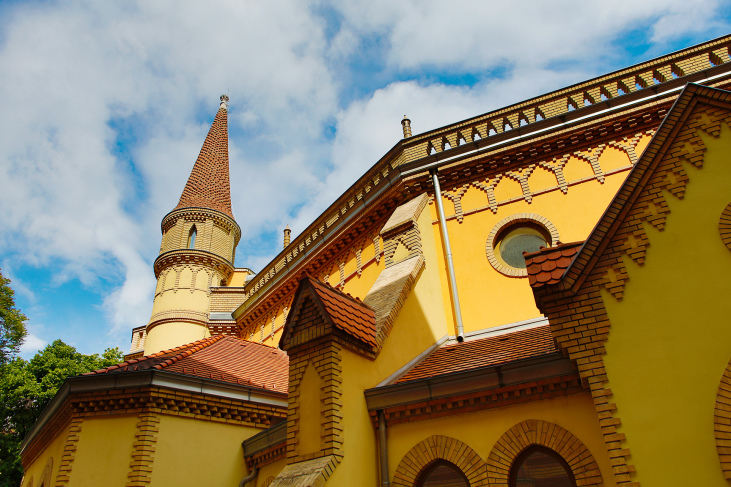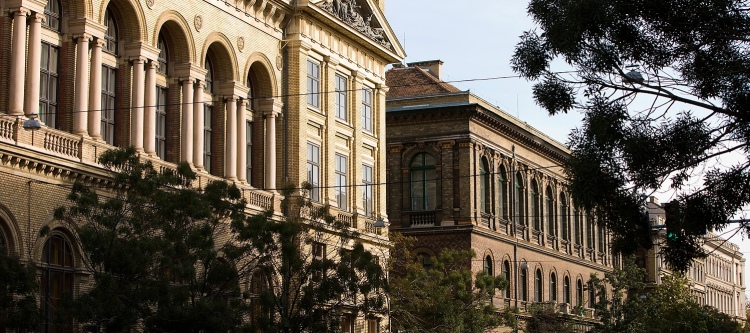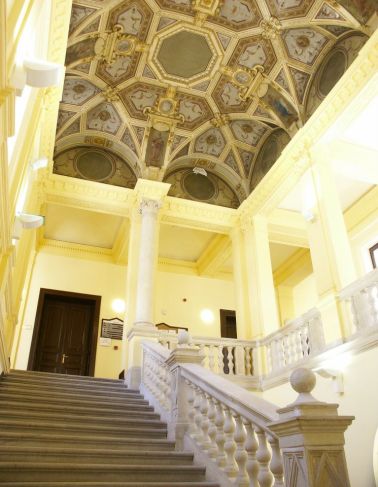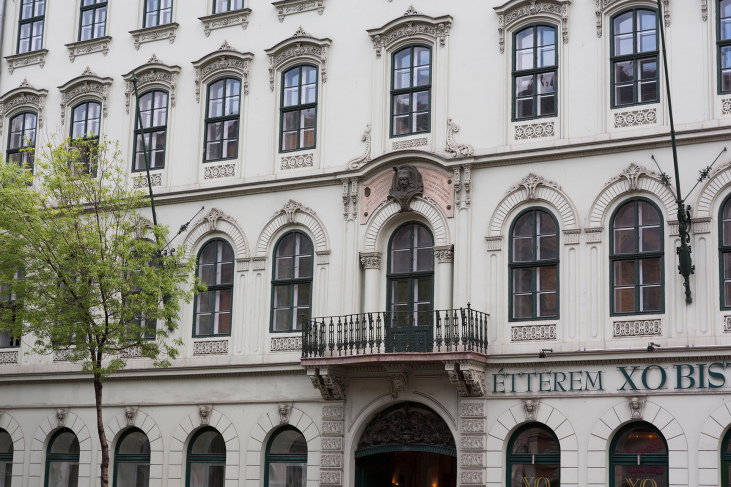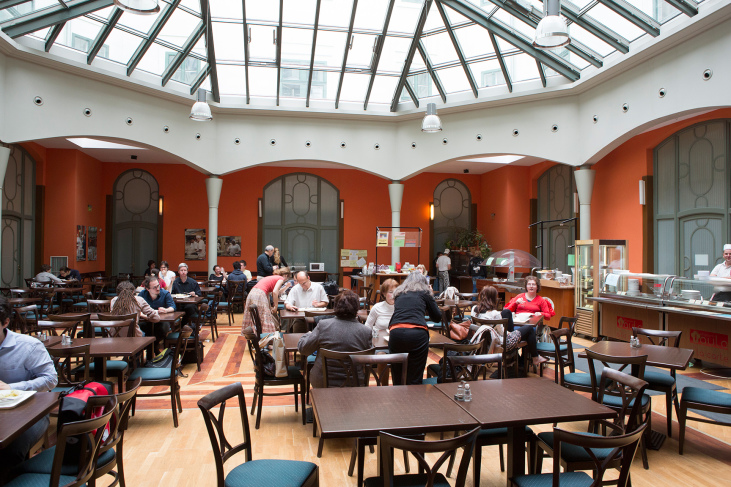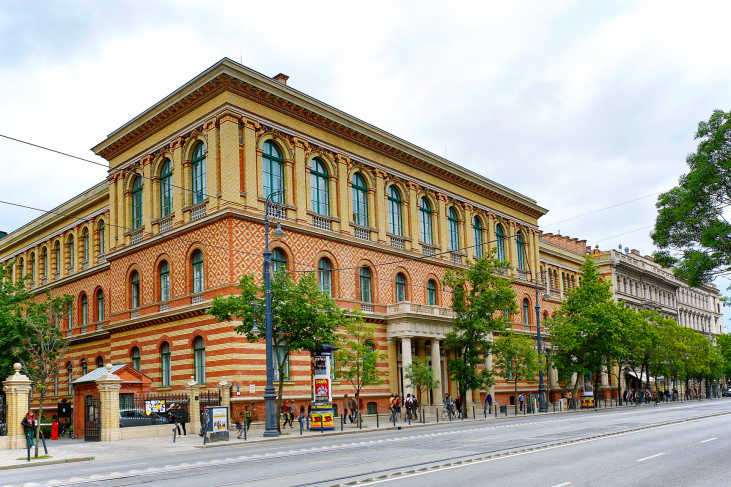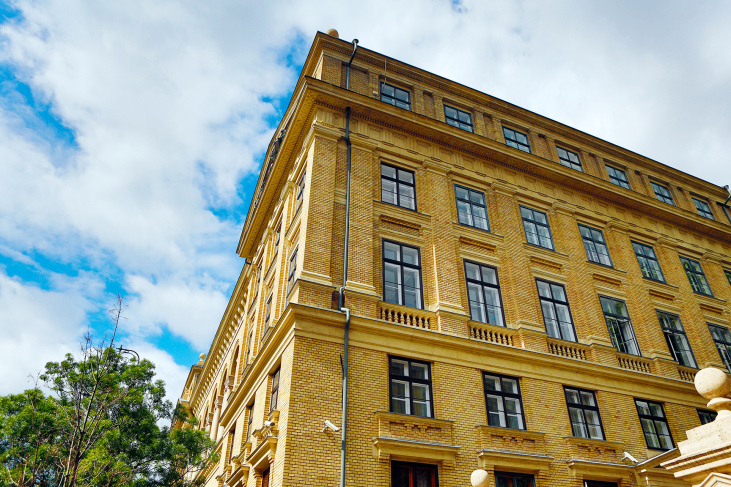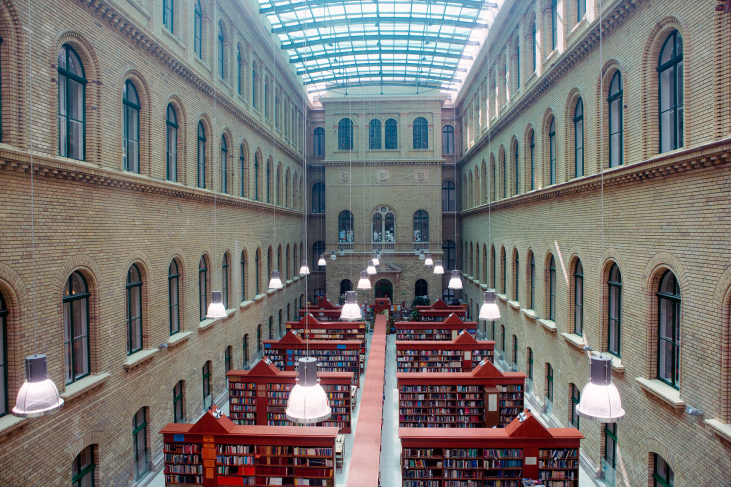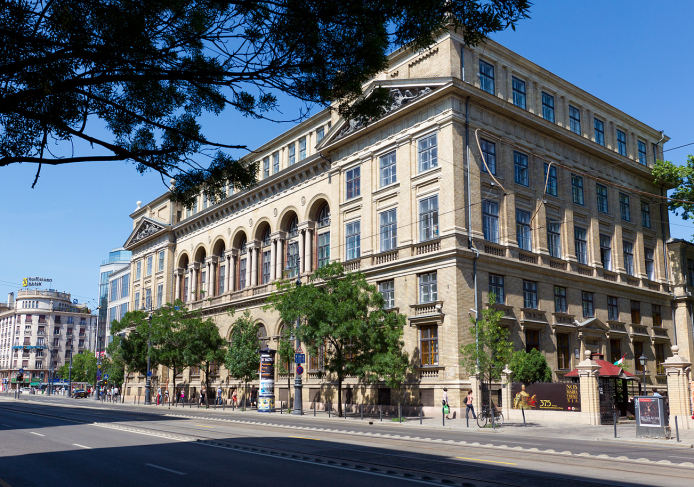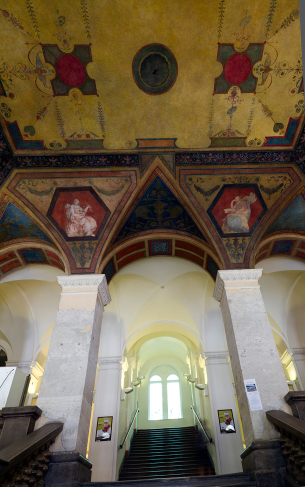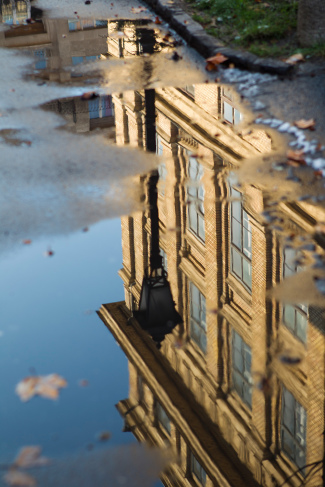Dutch Language and Culture Studies MA
Dutch Language and Culture Studies MA
Philologist of Dutch Language and Culture
Degree program
Master
FNYF/146-3/2016.
Dutch
4 semesters (2 years)
120
1
10
The MA course in Dutch Language and Culture Studies aims to train professionals in Dutch language, as well as Dutch/Flemish literature, culture and history, who are able to use this language on an advanced level, both in writing and speaking (level C2) and use it in their professions. Moreover, they gain in-depth theoretical and practical knowledge of Dutch literature, culture and history. The chief objective of the Department of Dutch Studies is to teach and research Dutch language, literature and culture in its complexity. Dutch Studies embraces the language, literature and culture of two countries: the Netherlands and Flemish Belgium. The MA program does not provide teaching qualifications.
Students of Dutch Language and Culture Studies MA will be able to acquire a wide-range education, different skills and knowledge. The course provides specialized Dutch and philological and linguistic studies, language skills on high level, professional knowledge of Dutch literature and culture and insight in literary translation. The MA programme prepares students for starting a PhD programme.
This program is recommended to applicants who are interested in languages, literature, translation, cultural studies, media, intercultural communication and cultural diplomacy. It is especially recommended to those, who are interested in studying the Dutch language, cultures and literatures on academic level.
This program enables students to learn the Dutch language on a professional level, use it in academic writing, as well as everyday oral argumentation in a scholarly and business environment. Students will thus attain in depth knowledge of academic research, evaluation and critical thinking in literature, Dutch and Flemish socio-political history, and develop an understanding of the linguistic levels of description and analysis of Dutch (phonology, morphology and syntax).
The following subjects are taught in the framework of the Dutch Language and Culture Program:
- linguistics: history of the Dutch language, descriptive grammar, lexicology, lexicography, phonetics and phonology of Dutch
- the history of literature of the Low Countries from the Middle Ages up to the present time
- literary, cultural and translation theory
- translation practice
- literary translation practice
- interpretation
- the culture and history of the Low Countries
- the history of art in the Low Countries
- practical language courses: speaking, writing, corresponding, translation
The MA programme in Dutch Language and Culture Studies aims to provide in depth knowledge and skills (language, linguistic, literary and cultural studies) necessary for the philological study of The Netherlands and the Flemish part of Belgium to its graduates. Our programme results in graduates with not only high proficiency in the Dutch language, but also a familiarity with the societies and cultures of the countries where Dutch is spoken as the first language. Our graduates will be familiar with fields and methods of academic research and will be able to meet the requirements of the PhD course.
- Students acquire the necessary theoretical knowledge and practical skills that can be utilised in both private and public-sector establishments.
- Level of language proficiency corresponds to C2 level (proficiency) of CEFR. Language of instruction in the courses is Dutch (with the exception of the translation and interpretation courses, where Hungarian is also used).
- Students are eligible for admission to PhD programmes.
Find the detailed structure of the program on the site of the Faculty.
In all fields requiring a university degree without specifications of majors: publisher's houses, proof reading, editing, journalism, book reviews, interpreting, translating, language professionals at multinational companies. Degree holders can continue in PhD programmes requiring a major specific degree.
Graduates of the MA in Dutch Language and Culture Studies are sought in the following fields:
- the world of business
- the media
- the translation of books and periodicals
- diplomacy
- international relations institutes and think-tanks
- tourism
- agencies responsible for grant applications
- local government offices
- the arts
- Editor at publisher's houses, dailies, journals.
- Journalist, essayist,
- Tourist guide, cultural interpreter.
- Interpreter, translator of literary and non-literary texts.
- Front and back office professional at multilingual service-centres.
- Project manager at government organisations,
- Professionals in cultural diplomacy, embassies, cultural centres.
- Dutch language teacher
2,500 EUR
2,500 EUR
The application fee is discounted for Early Bird applicants: EUR 100 (non-refundable) between 01/11/2024 - 30/11/2024 and between 01/02/2025 - 31/03/2025; The regular application fee is: EUR 150 (non-refundable) between 01/04/2025-31/05/2025
The application fee is discounted for Early Bird applicants: EUR 100 (non-refundable) between 01/11/2024 - 30/11/2024 and between 01/02/2025 - 31/03/2025; The regular application fee is: EUR 150 (non-refundable) between 01/04/2025-31/05/2025
100 EUR (Entrance exam fee)
100 EUR (Entrance exam fee)
2,500 EUR
The application fee is discounted for Early Bird applicants: EUR 100 (non-refundable) between 01/11/2024 - 30/11/2024 and between 01/02/2025 - 31/03/2025; The regular application fee is: EUR 150 (non-refundable) between 01/04/2025-31/05/2025
100 EUR (Entrance exam fee)
Yes
01, Sep, 2025
31, May, 2025
No
Entry requirements
Applicants must hold a university bachelor’s degree (or an equivalent college degree) in the fields listed below. Full credit acknowledgement is only given for a BA degree in the fields of German Studies BA, Specialized in Netherlandistic Studies.
In case of any other degree, each diploma will be considered individually. The applicant must have at least 50 credits in the field of Netherlandistic studies (Linguistics, Literature and Culture) to enter the programme. Transcripts from your bachelor's degree as well as course descriptions will be requested.
The educational and outcome requirements are defined by the Ministry of Human Capacities, Regulation No. 18/2016. (VIII. 5.). Details of the application and admission process are defined by the Organisational and Operational Regulations of ELTE.
Language requirements
Dutch: CEFR C1
The language of instruction for the entire program is Dutch.
|
Document |
Comment |
|---|---|
|
- |
|
|
Secondary school certificate (graduation certificate) |
Notarized copy only on request. |
|
Bachelor-level degree |
An official copy of your completed Bachelor degree |
|
Transcript of records |
|
|
CV |
In English, in MS Word format with one low resolution photo |
|
Motivation letter |
A maximum of 500 words. |
|
Copy of the main pages of the passport |
Scanned, in colour all personal details and expiry date must be shown. Passport must be valid. |
|
Copy of application fee transfer |
|
|
Copy of the Entrance exam fee transfer |
|
|
Language certificate |
Official test result or certificate must be provided; |
|
Other: An official English translation of the certificates and the records if the language of the original is not English |
Optional documents for admission
- Research Proposal
Please consult with the coordinating department for more information - Letter of Reference
Also called "Letter of recommendation." From a former instructor and/or employer.
Application deadlines:
The deadline for application means the deadline of submission of the full and complete application package in the online system.
Period 1 (with Early Bird discount): 01/11-30/11/2024 23:59 (CET)
Period 2 (with Early Bird discount): 01/02-31/03/2025 23:59 (CET)
Period 3: 01/04-31/05/2025 23:59 (CET)
The application procedure includes 3 periods in order to give the applicants the freedom to submit their application when it’s most suitable for them. The applicants of each period have the same chance to get admittance for the programme. However, please note, that the Faculty of Humanities ELTE reserves the right to cancel the entrance periods in case the number of the admitted applicants reaches the limit during the previous entrance periods.
Procedure of the application:
The application starts in the online application system. Students need to register in the system, fill in the online application form, upload the required documents and follow the instructions during the application process.
The programme is not available for Hungarian citizens.
The educational and outcome requirements are defined by the Ministry of Human Capacities, Regulation No. 18/2016. (VIII. 5.). The details of the application and admission process are defined by the Organisational and Operational Regulations of ELTE.
Applications will only be processed if the application fee (100 EUR or 150 EUR depending on application period; non-refundable) has been transferred to the Faculty’s bank account. The Application and the Entrance exam fee can be paid separately or in one amount as well. For further information regarding fee transferring please visit the homepage of our Faculty.
BANK ACCOUNT DETAILS OF OUR UNIVERSITY
IBAN Bank Account: HU 03 1003 2000 0142 6201 0000 0000
BIC/SWIFT code: HUSTHUHB
Name of the University: EÖTVÖS LORÁND UNIVERSITY, ELTE BTK
Address: 1088 Budapest, Múzeum krt. 4/a, Hungary
Name of the Bank: Hungarian State Treasury Ltd. (Magyar Államkincstár)
Address of the Bank: 1139 Budapest, Váci út 71.
PLEASE DO NOT MISS TO ADD IN THE MESSAGE SECTION:
Name of applicant
AY (for example: 2025/26/1)
The University’s sub-account number: AC9202/04
Results and the official decision will be announced within a month after the entrance exam date, in the application system.
For more information about the application procedures, please visit the Faculty's website.
Procedure of the entrance examination:
The entrance exam contains a discussion about the motivation and program-related academic background and professional experience of the applicant. Successful applicants must have a good command of Dutch and pass the entrance exam. The entrance exam can be taken in person or via Skype. The ranking is based on a total evaluation of the academic excellence (based on the submitted documents) and the results of the entrance exam.
Dr. Orsolya RÉTHELYI
Head of Department of Dutch Studies
Admission
Department of International Affairs
E-mail: admission@btk.elte.hu
Address: 1088 Budapest, Múzeum krt. 4.
More information
Website
Netherlandic Studies
Netherlandic Studies
0
/
0














0
/
0

